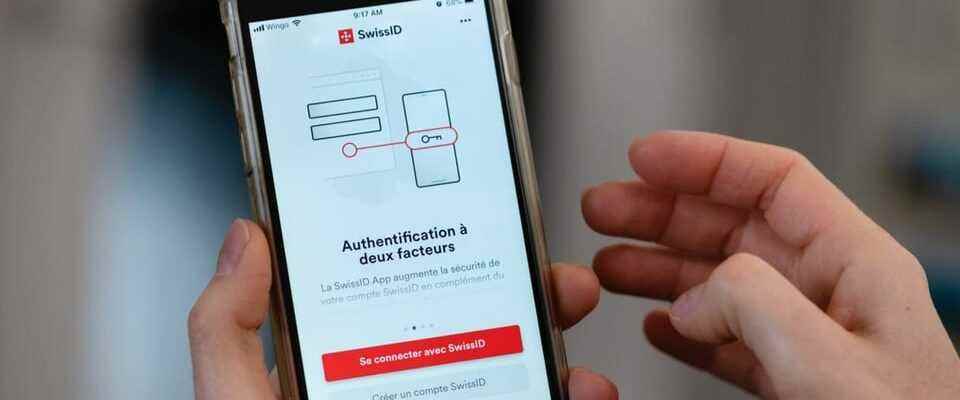- 15 months after the no at the ballot box to a private e-ID, a government solution is ready.
- In the future, the federal government is to offer an app for smartphones that can be used to digitally identify oneself securely, quickly and easily.
- One focus is on data security.
On Wednesday, the Federal Council opened the consultation on the preliminary draft of the federal law on electronic proof of identity and other electronic proof (E-ID law). This lasts until October 20, 2022.
All persons who have a Swiss identity card, a Swiss passport or a residence permit issued by Switzerland should be able to apply for the state digital proof of identity. The digital identity could be used, for example, when ordering an extract from the criminal record electronically on the Internet or as proof of age when buying alcohol in a shop.
Legend:
Everyone should be able to manage the E-ID themselves.
key stone
«Greatest possible control over data»
Everyone should be able to manage the E-ID themselves. Unlike the rejected template, the federal government is responsible for issuing the e-ID and operates the infrastructure that serves as the basis for the e-ID. The Federal Council is thus complying with the wishes of Parliament, which recently passed initiatives in this direction.
“Users of the future state e-ID should have the greatest possible control over their data,” writes the Federal Council on the consultation draft. Data protection should be guaranteed by the system itself, but also by minimizing the necessary data flows and decentralized data storage. The designations for this are self-sovereign identity, privacy by design and data economy.
Users of the future state e-ID should have the greatest possible control over their data.
Wide voluntary application planned
The Federal Council also wants to formulate the law in a technology-neutral way in order to be able to react to developments. In any case, the Swiss E-ID system should comply with international standards so that one day the E-ID can also be recognized and used abroad.
The use of an E-ID should be voluntary and free of charge. All federal services for which an E-ID can be used would continue to be offered in an analogous process, writes the Federal Council.
At the same time, all authorities, including cantons and communes, would have to accept the E-ID if they carry out electronic identification, for example when issuing a confirmation of residence or an extract from the debt enforcement register.
First hurdles overcome
The state infrastructure created for the purpose of the E-ID should also be able to be used by municipal and cantonal authorities as well as by private individuals. The goal is that, for example, diplomas or tickets and membership cards can also be issued as digital proof and managed securely in the app.
Pilot projects are planned for various ideas. The Federal Roads Office (Astra) and the Association of Road Traffic Offices (Asa), for example, want to launch an electronic driver’s license. The Federal Chancellery is examining the feasibility of a new electronic ID card for federal employees.
The new E-ID project has already cleared the first hurdles. Last year, the federal government conducted a public consultation. Around sixty comments were received. Based on this, the Federal Council made a directional decision and laid down the principles of the new state E-ID.
